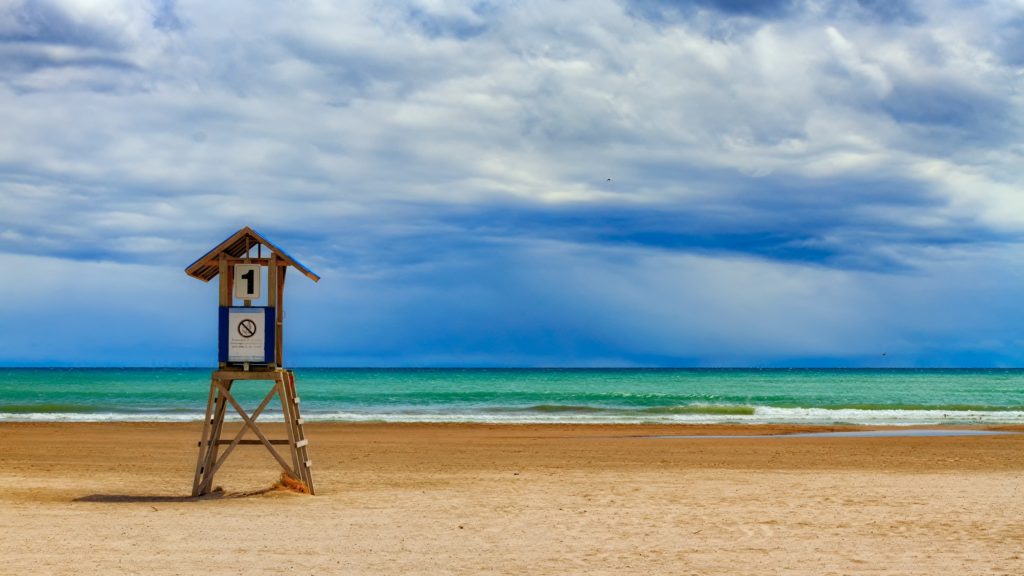Drowning doesn’t look like drowning – at least not the way it’s portrayed on television and in movies. There’s something called the Instinctual Drowning Response that allows people – mainly children – to drown, often within mere feet of a potential rescuer. But what the heck does this have to do with small business?

An article from 2018 caught my eye the other day. “Drowning Doesn’t Look Like Drowning” is one of the best articles I’ve read in a while. I highly recommend you jump over there and read the article, especially if you and your family spend any time at all on the water. Seriously, it’s good stuff! It was so good, I couldn’t help but think of all the small businesses that have gone under while people stood around and watched, all the while thinking how successful everything appeared.
Just like drowning doesn’t look like drowning, small business failure doesn’t always look like failure (at least not how it’s portrayed on television and in the movies!). It usually looks like a normal, successful business with happy owners. No splashing. No flailing arms. No cries for help. No overt movement or sounds that would indicate trouble. Just quiet struggling, then death.
So how are we to know a business is in danger of going under? How are we to know it’s silently drowning? Just as there is a documented Instinctive Drowning Response (again, see the linked article), there is an instinctive small business failure response. Here are the signs:
- The answer to “How are things going” is “Fine” or an equivalent equivocation. Just as a drowning person is physiologically incapable of speaking or crying out for help, a drowning business owner is incapable of verbalizing how much trouble they’re in. Often, even those closest to him or her have no clue just how close they are to drowning.
- Just as a drowning person’s mouth may slip under the water, bobbing up just long enough to take a quick breath, a failing business owner may be doing the same thing with money. With no steady supply of air (money), the owner will begin to pay one bill this month, and another next month, bouncing from creditor to landlord to supplier. Each payment is a short breath, but not enough can be strung together to allow for recovery.
- Things may be calm on the surface, but just as a drowning person may appear to be trying to climb a ladder under water, a failing business owner may be churning beneath the surface to no avail. Even good swimmers drown. Circumstances sometimes cause good swimmers to ditch fundamentals, and instinctual movement kicks in. A business owner may seem calm on the surface while stress takes its toll on physical and emotional health, relationships, and more.
The Drowning article points out just how short the window is between detection and rescue. Having witnessed more than my share of drowning businesses, I can say with certainty that there is also a short window for business owners, too. What to do in that short window?
- Cry for help. Verbalize your situation to someone qualified to dive in and rescue you. Talk to a family member, your lender, your landlord, the nearest small business development center, or a SCORE counselor – anyone with a life preserver. Use your last breaths to get help. Better to swallow your pride than a lungful of water.
- Grab the life preserver. Instinct may drive you to bat your arms, pushing down on the water, but try to clear your mind and reach out to whatever help you’re offered. Your lender, landlord, suppliers, and other creditors have a lot of options if – IF – you are willing and able to grab hold of them early enough. Too many business owners try to go it alone, thinking that things will eventually get better. When it gets worse, they may find they have no life preserver within reach, and they lack the strength (or resources) to go on.
The vast majority of business plans I’ve read are some of the best fiction ever written. They almost always plan for sunny days and calm waters. In other words, “The world will work the way I want it to, and my business will perform just as I expect it to.” Rarely does anyone plan for the worst case scenario.
Your best protection against drowning is a plan that will guide you if and when things don’t work out the way you plan. If you need help writing a plan, complete an online form to get started, then swim to success.
-Russ
